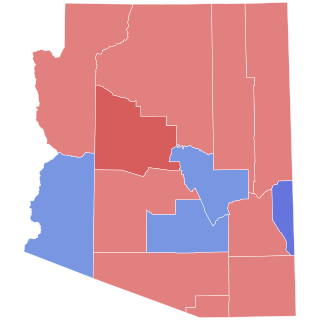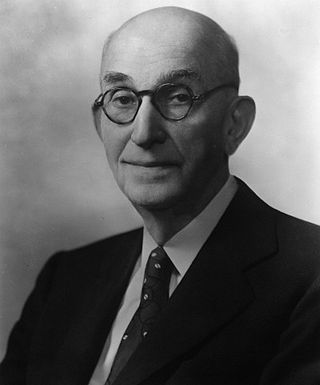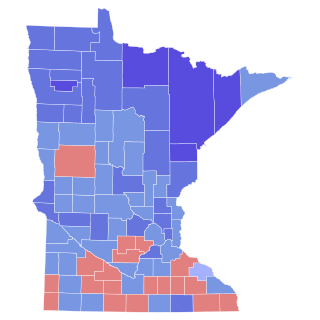
Herman Eugene Talmadge was an American politician who served as governor of Georgia in 1947 and from 1948 to 1955 and as a U.S. senator from Georgia from 1957 to 1981. A Democrat, Talmadge served during a time of political transition, both in Georgia and nationally. He began his career as a staunch segregationist known for his opposition to civil rights, including supporting legislation that would have closed public schools to prevent desegregation. By the later stages of his career, following the enactment of the Voting Rights Act, which gave substance to the Fifteenth Amendment enacted nearly one hundred years before, and increased African American voter participation, Talmadge, like many other Southern politicians of that period, had modified his views on race. His life eventually encapsulated the emergence of his native Georgia from entrenched white supremacy into a multiracial political culture where many white voters regularly elect Black and other non-white candidates to the U.S. Congress and Georgia General Assembly.

The 1968 United States Senate elections were elections for the United States Senate. Held on November 5, 1968, the 34 seats of Class 3 were contested in regular elections. They coincided with the presidential election of the same year. The Republicans picked 5 net seats up in the Senate. This saw Republicans win a Senate seat in Florida for the first time since Reconstruction.

The 1932 United States Senate elections coincided with Democrat Franklin D. Roosevelt's landslide victory over incumbent Herbert Hoover in the presidential election. The 32 seats of Class 3 were contested in regular elections, and special elections were held to fill vacancies.

The 1980 United States Senate election in Georgia was held on November 4, 1980. Incumbent Democratic U.S. Senator and former Governor of Georgia Herman Talmadge ran for reelection to a fifth term, but lost narrowly to Mack Mattingly, Chairman of the Georgia Republican Party.

The 1976 United States Senate election in New York was held on November 2, 1976. Incumbent Republican U.S. Senator James L. Buckley ran for re-election to a second term, but was defeated by Democratic diplomat Pat Moynihan. As of 2024, this is the last time an incumbent Senator from New York lost re-election to this seat.

The 1928 United States Senate elections in Arizona took place on November 6, 1928. Incumbent Democratic U.S. Senator Henry F. Ashurst ran for reelection to a fourth term, defeating Republican nominee former U.S. Senator Ralph H. Cameron in the general election. Cameron was defeated in the previous election year, in 1926, by then-U.S. Congressman Carl T. Hayden, leading Cameron to decide to challenge Ashurst in order to return to the United States Senate.

The 1958 United States Senate election in Arizona took place on November 4, 1958. Incumbent Republican U.S. Senator Barry Goldwater ran for reelection to a second term, and defeated former U.S. Senator, and then-Governor, Ernest McFarland in the general election. The election was a rematch from 1952, where Goldwater defeated McFarland by a narrow margin. Goldwater had attributed the 1952 win to the unpopularity of President Harry S. Truman and popular Wisconsin Senator Joseph McCarthy endorsing his campaign.

The 1956 United States Senate election in Arizona took place on November 6, 1956. Incumbent Democratic U.S. Senator Carl Hayden ran for reelection to a sixth term, defeating Republican nominee Attorney General of Arizona Ross F. Jones in the general election.

The 1974 United States Senate election in Arizona took place on November 5, 1974. Incumbent Republican U.S. Senator Barry Goldwater decided to run for reelection to a second consecutive term, after returning to the U.S. Senate in 1968 following his failed Presidential run in 1964 against Lyndon B. Johnson. Goldwater defeated Democratic Party nominee philanthropist Jonathan Marshall in the general election.

The 1962 United States Senate election in Arizona took place on November 6, 1962. Incumbent Democratic U.S. Senator Carl Hayden ran for reelection to a seventh term, defeating Republican State Senator Evan Mecham in the general election. Mecham became Governor of Arizona more than two decades later, and was subsequently impeached and removed from office.

The 1980 United States Senate election in Arizona took place on November 4, 1980. Incumbent Republican Senator Barry Goldwater decided to run for reelection to a third consecutive term, after returning to the Senate in 1968 following his failed presidential run in 1964 against Lyndon B. Johnson. Despite Republican presidential nominee Ronald Reagan's landslide win in Arizona, Goldwater defeated Democratic Party nominee Bill Schulz in the general election by a narrow margin, which later caused Goldwater to decide against running for reelection to a fourth consecutive term. Goldwater won only three counties, including Maricopa County.

The 1974 United States Senate election in New York was held on November 5, 1974. Incumbent Republican U.S. Senator Jacob Javits won against Democratic challenger Ramsey Clark in a three-way election.

The 1968 United States Senate election in New York was held on November 5, 1968. Incumbent Republican U.S. Senator Jacob Javits defeated Democratic challenger Paul O'Dwyer and Conservative Party challenger James Buckley in a three-way race.

The 1968 United States Senate election in Maryland was held on November 5, 1968. Incumbent Democratic U.S. Senator Daniel Brewster ran for re-election to a second term in office but was defeated by Republican U.S. Representative Charles Mathias. Mathias may have benefited from the campaign of George P. Mahoney, the 1966 Democratic nominee for Governor of Maryland, who ran on the George Wallace American Independent ticket and garnered a significant chunk of the vote.

The 1956 United States Senate election in Georgia took place on November 6, 1956. Incumbent Democratic U.S. Senator Walter F. George did not run for re-election.

The 1962 United States Senate election in Georgia took place on November 5, 1962. Incumbent Democratic U.S. Senator Herman Talmadge was re-elected to a second consecutive term in office, winning large victories in the primary and general elections.

The 1970 United States Senate election in Minnesota took place on November 3, 1970. Incumbent Democratic U.S. Senator Eugene McCarthy opted not to seek reelection. Former Democratic U.S. Senator, former Vice President and 1968 presidential nominee Hubert Humphrey defeated Republican U.S. Representative Clark MacGregor.

The 1974 United States Senate election in Colorado took place on November 5, 1974. Incumbent Republican U.S. Senator Peter Dominick ran for re-election to a third term in office, but was defeated by Democrat Gary Hart. As of 2024, this is the last time that an incumbent Senator from Colorado lost re-election for this seat, and the last time that El Paso County voted for the Democratic candidate in a Senate election.

The 1974 United States Senate election in Georgia took place on November 5, 1974. Incumbent Democratic U.S. Senator Herman Talmadge was re-elected to a fourth consecutive term in office, winning large victories in the primary and general elections.

The 1984 United States Senate election in Wyoming took place on November 6, 1984. Incumbent Republican U.S. Senator Alan Simpson was re-elected to a second term in office, defeating Democrat Victor Ryan in a landslide. Alan Simpson won 78.32% of the popular vote in the United States Senate election in Wyoming winning 7.81% more than Ronald Reagan had won in the concurrent presidential election in the state. Alan Simpson won the election by 146,373 votes winning 13,132 more votes than Ronald Reagan had won in the concurrent presidential election.























